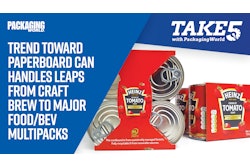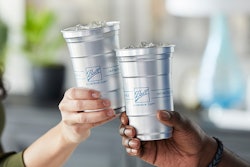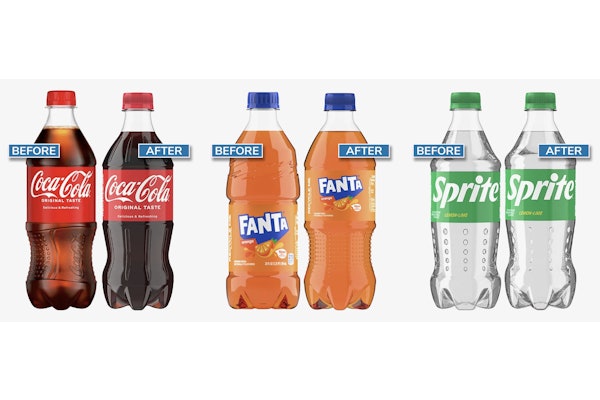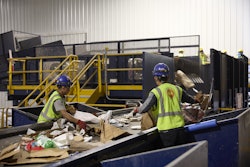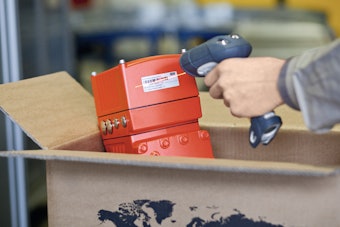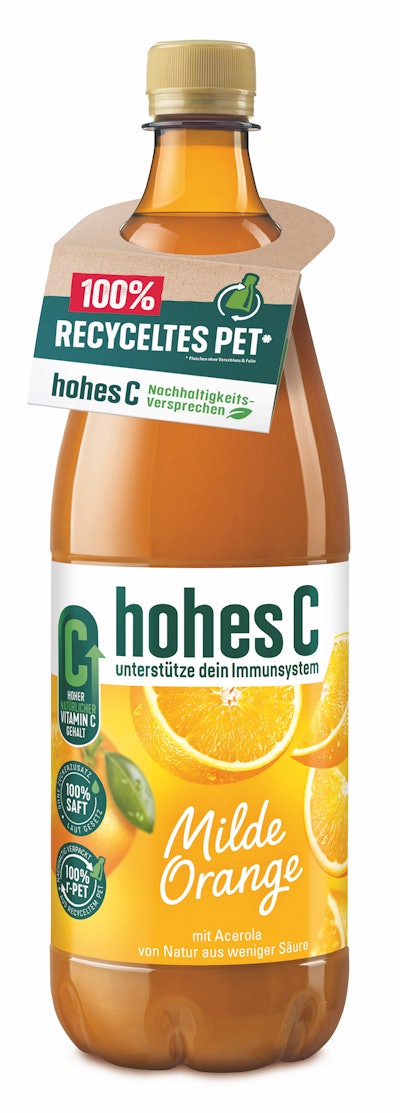
“Considering the EU’s plastics strategy and the increase in recyclate quotas this prescribes, we’ve now decided to switch to using recycled PET only,” says Hermann Naumann, plant manager for Eckes-Granini in Bad Fallingbostel in Lower Saxony. “We want to be a pioneer with regard to the circular economy and set a good example for the beverage industry.”
Europe’s leading producer of fruit juice beverages has pursued an ambitious sustainability strategy for years, adds Naumann. “We aim to continue steadily reducing our carbon footprint in production and in our packaging. This means not only cutting down on the amount of material used but also closing the recycling loop.”
With help from the KHS Group (https://www.khs.com/en/) , since the middle of May the firm’s 1-L hohes C juice bottle has consisted entirely of recycled plastic (rPET). KHS’ Bottles & Shapes experts in Hamburg were responsible for optimization of the bottle. The new containers will continue to be produced on the tried-and-tested InnoPET FreshSafe block.
According to Eckes-Granini, the changeover of the 1-L hohes C bottle to rPET will save over 4,000 metric tons of new PET annually. This in turn means that the bottler will cut its carbon emissions by about 8,000 tons a year.
Finding ways of saving on resources was not the only focus of the ambitious project. The ability to do so on the KHS InnoPET FreshSafe block in operation at Eckes-Granini since 2017 also had to be investigated. “One of the concerns was whether either the preforms or machine would need modification,” explains Dr. Matthias Kruse, head of PET Technology at KHS. “So we carefully assessed the quality of the recycled PET material. This is crucial, for large variances in color, molecular length, or inhomogeneity can quickly reduce the efficiency of production.”




